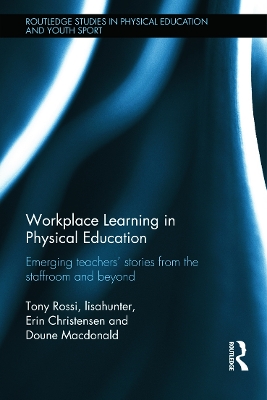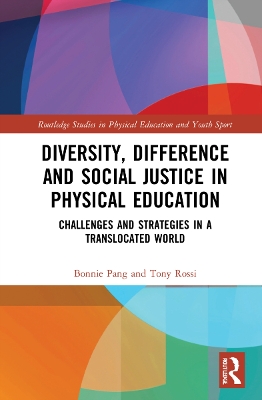Routledge Studies in Physical Education and Youth Sport
2 total works
Workplace Learning in Physical Education
by Tony Rossi, lisahunter, Erin Christensen, and Doune Macdonald
Pre-service and beginning teachers have to negotiate an unfamiliar and often challenging working environment, in both teaching spaces and staff spaces. Workplace Learning in Physical Education explores the workplace of teaching as a site of professional learning. Using stories and narratives from the experiences of pre-service and beginning teachers, the book takes a closer look at how professional knowledge is developed by investigating the notions of ‘professional’ and ‘workplace learning’ by drawing on data from a five year project. The book also critically examines the literature associated with, and the rhetoric that surrounds ‘the practicum’, ‘fieldwork’ ‘school experience’ and the ‘induction year’.
The book is structured around five significant dimensions of workplace learning:
- Social tasks of teaching and learning to teach
- Performance, practice and praxis
- Identity, subjectivities and the profession/al
- Space and place for, and of, learning
- Micropolitics
As well as identifying important implications for policy, practice and research methodology in physical education and teacher education, the book also shows how research can be a powerful medium for the communication of good practice. This is an important book for all students, pre-service and beginning teachers working in physical education, for academics researching teacher workspaces, and for anybody with an interest in the wider themes of teacher education, professional practice and professional learning in the workplace.
Diversity, Difference and Social Justice in Physical Education
by Bonnie Pang and Tony Rossi
This book presents a detailed analysis of the experiences of (minority ethnic) physical education (PE) teachers in both schools and higher education contexts. It examines and questions the lack of ethnic diversity in PE teacher education in high-income developed countries and suggests important new directions for transformative pedagogy to address the ‘whiteness’ of PE.
The book draws on auto-ethnographical research conducted in Sydney, Australia—one of the world’s most culturally diverse cities—and in cities of the United Kingdom. The study is rooted in the concept of ‘trans-locality’, the networks that extend beyond the immediate community. It explores the challenges faced by PE teachers in culturally diverse workplaces, and the interconnections between place, institutions, and the parallel processes of mobility and globalisation. To understand and theorise the myriad of interactions and practice around diversity, differences, and social justice among lecturers, teachers, and students across the two locations, the book offers an emerging area of scholarship that focuses on a trans-local perspective in diversity and inclusion in Physical Education Teacher Education (PETE).
Diversity, Difference and Social Justice in Physical Education will be of significance to those who manage, teach, and research issues associated with diversity and advocate for diversifying the teaching workforce in PETE.

